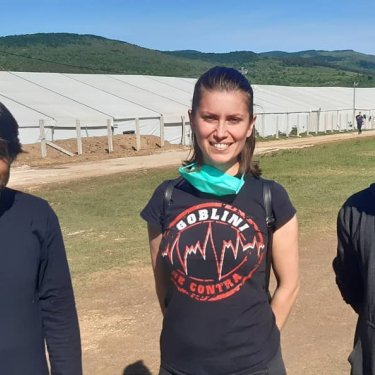Bosnia: Death threat against a journalist goes unpunished

Reporters Without Borders (RSF) condemns the decision by a prosecutor in Republika Srpska to drop all proceedings against the man who threatened to murder the Editor-in-Chief of the eTrafika news site.
When Vanja Stokić, the Editor-in-Chief of eTrafika, posted a photo of herself with two migrants – about whom she had just done a story – on Facebook on 22 May, a man with history of arrests for theft, Goran Živanović, added a comment threatening to “behead” the migrants and “all you good souls who welcome them.”
Tatjana Ninković, a prosecutor in Republika Srpska, the Serb-dominated entity of Bosnia and Herzegovina, nonetheless dismissed all charges against Živanović on 14 July on the grounds that “the threats were made against an unspecified person” and therefore constituted neither a crime against public safety nor inciting hatred.
When reached by RSF, Stokić described the decision as “devastating” and said it “signals to everyone that hate speech and death threats will not result in punishment.” Her lawyer has filed an appeal against the decision.
The dismissal of all charges is just the latest in a series of absurd decisions in the case. When Stokić first tried to file her complaint, a policewoman told her to come back in two days, giving Živanović a free hand to continue threatening her on social media.
Under pressure from the media, the police finally detained Živanović, but released him immediately after taking his statement.
“By their implicit connivance with Goran Živanović, the authorities in Republika Srpska have become accomplices not only to the intimidation of Vanja Stokić but also possibly to an even more serious crime if he passes from words to action,” said Pavol Szalai, the head of RSF’s European Union and Balkans desk. “The reopening of the investigation and the protection of Vanja Stokić are essential not only to protect press freedom in Bosnia but also to comply with the standards of the European Union, which Bosnia wants to join.”
Bosnian journalists are often subjected to intimidation, including by the authorities. Independent journalist Nidžara Ahmetašević was insulted by police and threatened with prosecution when she filmed them arresting migrants in Sarajevo in June. The N1 TV channel’s Nikola Vučić was harassed on Twitter in May because of his criticism of the far right in a Croat-dominated canton.
Bosnia and Herzegovina is ranked 58th out of 180 countries in RSF's 2020 World Press Freedom Index.



